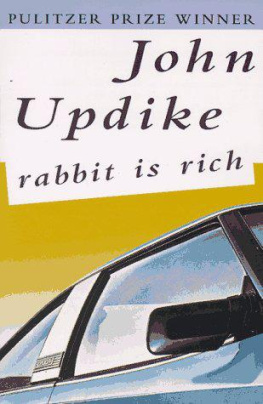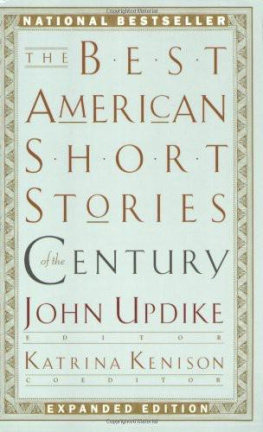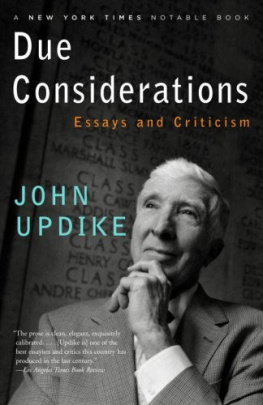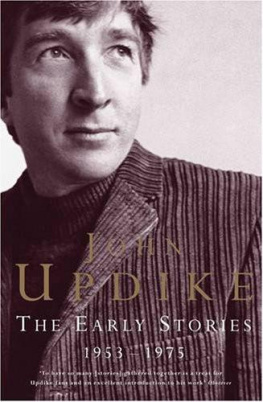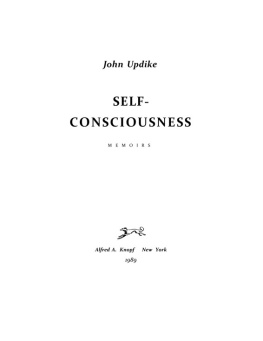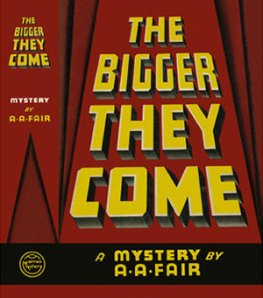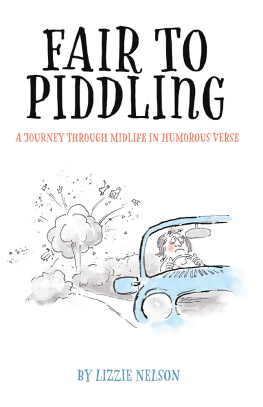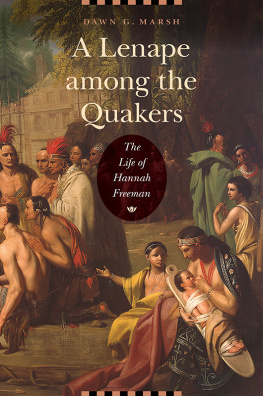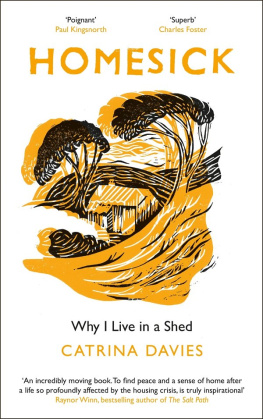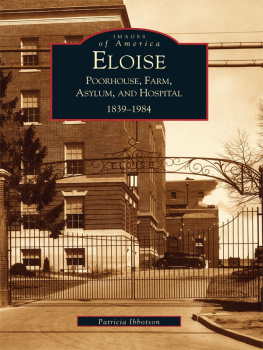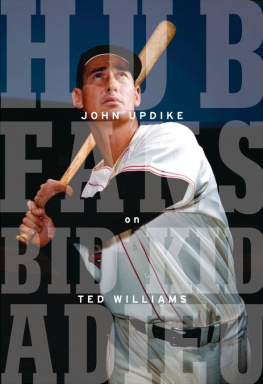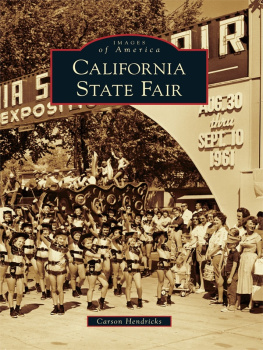John Updike - Poorhouse Fair
Here you can read online John Updike - Poorhouse Fair full text of the book (entire story) in english for free. Download pdf and epub, get meaning, cover and reviews about this ebook. year: 1977, publisher: Knopf, genre: Detective and thriller. Description of the work, (preface) as well as reviews are available. Best literature library LitArk.com created for fans of good reading and offers a wide selection of genres:
Romance novel
Science fiction
Adventure
Detective
Science
History
Home and family
Prose
Art
Politics
Computer
Non-fiction
Religion
Business
Children
Humor
Choose a favorite category and find really read worthwhile books. Enjoy immersion in the world of imagination, feel the emotions of the characters or learn something new for yourself, make an fascinating discovery.

- Book:Poorhouse Fair
- Author:
- Publisher:Knopf
- Genre:
- Year:1977
- Rating:4 / 5
- Favourites:Add to favourites
- Your mark:
- 80
- 1
- 2
- 3
- 4
- 5
Poorhouse Fair: summary, description and annotation
We offer to read an annotation, description, summary or preface (depends on what the author of the book "Poorhouse Fair" wrote himself). If you haven't found the necessary information about the book — write in the comments, we will try to find it.
Poorhouse Fair — read online for free the complete book (whole text) full work
Below is the text of the book, divided by pages. System saving the place of the last page read, allows you to conveniently read the book "Poorhouse Fair" online for free, without having to search again every time where you left off. Put a bookmark, and you can go to the page where you finished reading at any time.
Font size:
Interval:
Bookmark:
If they do this when the wood is green,
what will happen when the wood is dry?
LUKE 23:31
E. V. RIEU TRANSLATION
"WHAT'S THIS?"
"What's what?"
"Why, look."
In the cool wash of early sun the individual strands of osier compounding the chairs stood out sharply; arched like separate serpents springing up and turning again into the knit of the wickerwork. An unusual glint of metal pierced the lenient wall of Hook's eyes and struck into his brain, which urged his body closer, to inspect. Onto the left arm of the chair that was customarily his in the row that lined the men's porch the authorities had fixed a metal tab, perhaps one inch by two, bearing MR, printed, plus, in ink, his latter name. A reflex of pride twitched the corners of his mouth; he had always preferred, in the days when certain honors were allowed him, to have his name spelled in full, with the dignity of the middle initial: John F. Hook. On the adjoining chair the name of his companion, Gregg, was similarly imposed. With the eye it was not difficult to follow the shining squares all the way down the line.
"What birdbrain scheme is this now of Conner's?" Gregg asked noisily, as if the taller man might not hear. "Is he putting tags on us so we can be trucked off to the slaughterhouse?"
"Well, yes: what is it? A child must tinker."
"They'll come right off," Gregg said and produced from the hip pocket of his shapeless wool trousers a black bone jackknife of the old style, with a blade for removing the metal cap from bottles. With this blunt blade he adroitly began to loosen, not his own nameplate, but Hook's.
Gregg's small brown hands, the thumbs double-jointed and spatulate and the backs covered with dark lines as fine as hair, sought leverage with a quickness that recalled to Hook that his companion had been, before alcohol and progress had undone him, an electrician.
"Here," Hook said, hoarse as much from the discomfort it caused him to focus his eyes on action so near at hand as from disapproval. In truth he felt helpless. He enjoyed no real control over Gregg, though some crooked whim or weakness led the younger man lately to cling close to Hook's presence. It was Hook's misfortune to have the appearance of authority yet lack the gift of command. He sought a reason that would stay Gregg. "If we forget our place, they'll take the chairs themselves off, and we'll be left to stand."
"And then all die of heart attacks; I hope we do. It'll make a f.ing black mark in Conner's book, to have us all keel over without a place to sit."
"It's a sin to talk on so," Hook exclaimed positively, for death, to his schoolteacher's mind, was a bell that must find the students with their noses to the desk. "And," he went on, "it is a mis-take for the old to mo-lest others' property. The young now, the young have nothing, and may be winked at when they steal a foretaste; but those who have had what there is to be had are expected to be beyond such foolishness. We fellas so close to the Line"--he raised his voice on this last word, inclined his head, and lifted his right hand in a dainty gesture, the index and little fingers pointing upward and the two between curled down--"have our accounts watched very close." The disciplenarian's instinct--which was somewhat developed, though he had always lacked the cruelty to be the disciplinarian paramount--told him these words had been correct for the purpose; he had a shadowy sense that what Gregg sought in his company were elevated forms of thought to shape and justify the confused rage he felt toward the world that had in the end discarded him. Also, there was something in the relationship of Hook's teaching the younger man how to be old; Hook at ninety-four had been old a third of his life, whereas Gregg, just seventy, had barely begun.
"Ah, we can pick them off with our fingers any time we want," Gregg said with contempt, and, nimbly as a monkey on a rubber tire in the old-fashioned zoos, he turned and sat in Hook's chair, rather than the one labelled as his own.
"Modern day workmen are not what they were," Hook stated, satisfied. Standing on one porch edge, he rested his gaze ha the comfortable depths to the east and north of the porch: shallowly concave farm plains tilled in scientifically irregular patches, the nearer lands belonging to the jurisdiction of the Poor Home; further off, small hills typical of New Jersey; presiding above, a ribbed sky, pink, betokening rain. The blurred click of Gregg's blades being snapped back into the sheath satisfied him still further. Paul ebbed from the muscles of his eyeballs as they lengthened to suit the horizon, and he felt positive pleasure. Despite the low orange sun, still wet from its dawning, crescents of mist like the webs of tent caterpillars adhered in the crotches of the hills. Preternaturally sensitive within its limits, his vision made out the patterned spheres of an orchard on the nearest blue rise, seven miles off. Beyond and beyond the further hills, he knew ran the Delaware. His life had been spent on that river, white in morning, yellow at noon, black by supper. On the other side had stood a green rim: Pennsylvania. In those days--it would have been in the first Roosevelt's administration--when he had freshly come, direct from normal school, to teach at a building of then less than a hundred pupils, walking to work had taken him along a path from which, down the long bank through switches of sumac and sapling oak, glimpses of water had appeared as white and smooth as a plaster wall. The path ascended, passing beneath a red oak where children had attached a knotted rope and on the trunk had nailed a ladder of slats. At the highest point three shacks housing the humblest elements of the town commanded a broad view. The bank was so steep here the tops of the tallest trees clinging to it were lower than one's own shoes. The river's apparent whiteness was dissolved in its evident transparency: the contours of bars of silt and industrial waste could be easily read beneath the gliding robe of water. A submerged bottle reflected sunlight. Occasionally, among the opaque fans of corrugation spread by each strand of shore growth, the heavy oblong of a catfish could be spied drifting. The family in one of the shacks did woodcutting; the air at this place in the path where Hook usually paused always smelled of sawdust, even in winter, through the snow. And across the width of water a curtain of trees hung, united with its reflection, unmarked by a house or puff of smoke. To Hook Pennsylvania had been the westerly wilderness, and when he crossed the bridge at Trenton it surprised him to encounter houses and streetcars as advanced as those in his native state.
His eyes had a thirst for water, but no amount of study would turn the blue-green hills into a river, and even were the intervening land shaved as clear as a table top, the Delaware would be hidden from him by the curvature of the earth--eight inches to the mile, as he recalled it. His education was prominent in two places: Roman history, which he had received in the grammar school of his day, and nineteenth-century American politics, talk of which had filled his father's home.
Closer to where he stood, on this side of the rough sandstone wall the women were beginning to move about on the dark grass, picking up sticks and carrying tables; foolish women, the dew would soak their feet.
"The sky suggests rain," he said, returning to Gregg in voice while not moving.
"The f.ing bastard I have half a mind to snip every one of these rotten tags off and throw them in his birdbrain face."
These wild words were not worth answering, and an answer, no matter what, would involve him deeper with Gregg. He felt distaste for Gregg: he was like a student who, having been given the extra attention due the sheep in a hundred that has strayed, then refuses to know his place, and makes of the older man's consideration a cause for a displeasing familiarity. Yet Gregg's physical aspect, and specifically the small, stained, wrinkle-hatched, dour and dangerous face that left no impression of its eyes, inspired persistent affection, reminding Hook of Harry Petree. Against Harry Petree's memory Hook abruptly shut his mind.
Next pageFont size:
Interval:
Bookmark:
Similar books «Poorhouse Fair»
Look at similar books to Poorhouse Fair. We have selected literature similar in name and meaning in the hope of providing readers with more options to find new, interesting, not yet read works.
Discussion, reviews of the book Poorhouse Fair and just readers' own opinions. Leave your comments, write what you think about the work, its meaning or the main characters. Specify what exactly you liked and what you didn't like, and why you think so.

